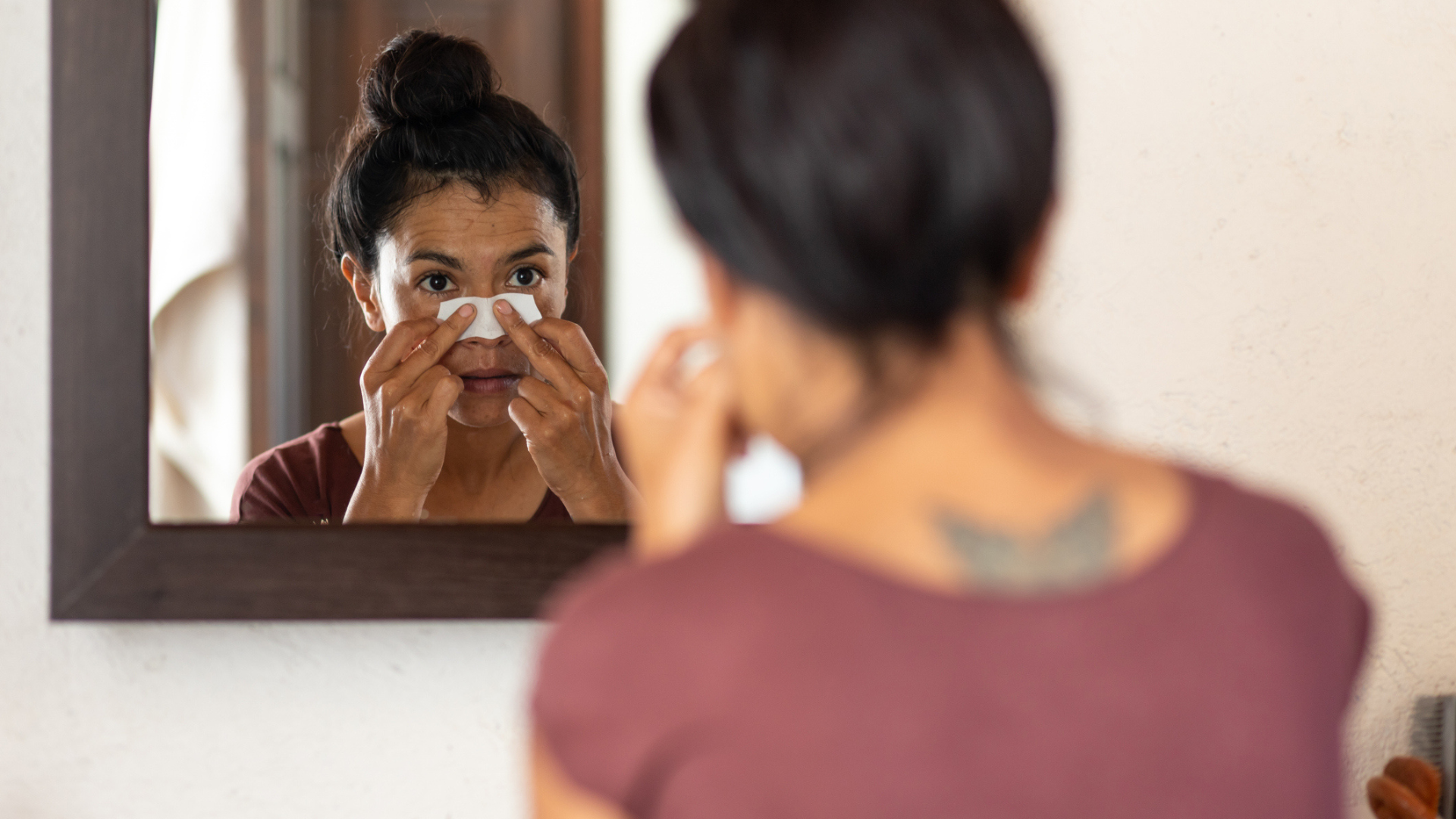Want to make 2025 the year you crack snoring? Here’s where to start

“Stop snoring” might not be the most glamorous New Year’s resolution, but it’s a great way to improve your sleep quality, and if you share a bed with a partner, they’re likely to thank you for it, too. That’s because the majority of Americans are kept awake by their partner’s sleep habits, with a common gripe among those surveyed being — you guessed it — snoring.
Reduced snoring might end up being a by product of other New Year’s resolutions. For example, if you’re aiming to lose weight, quit smoking or reduce your alcohol intake you may find your snoring stops, too. But if your number one priority this January is ditching snoring for good, you’re in luck.
We asked Dr. William Lu, medical director at Dreem Health, and Dr. Chelsea Perry, a snoring specialist at Sleep Solutions, for the first three steps everyone should take to crack snoring for good. From lifestyle changes to acing your sleep routine, these are the key measures you should consider if you want to stop snoring in 2025.
Why do people snore?
Most of us know the familiar droning sound of someone snoring. But what actually is it and why does it happen?
Snoring is the result of vibrations in the throat tissues that happen when the flow of air through the mouth and nose is partially blocked and breathing is obstructed.
Dr Lu explains this obstruction can be caused by anatomy (a long soft palate know as an uvula and poor muscle tone), lifestyle habits (being overweight, drinking or an irregular sleep position) or health conditions (nasal congestion, sleep apnea or a deviated septum).
First three steps to stopping snoring in 2025
Going into the New Year with the intention of kicking snoring to the curb once and for all? Look no further than these expert-approved first steps.
1. Identify lifestyle factors that are contributing to snoring
The first port of call when it comes to stopping snoring should be assessing your lifestyle to determine whether any habits are contributing to your noisy nighttime. For example, alcohol consumption and smoking increase the likelihood of snoring.
“Smoking can irritate the throat and other airway structures, causing inflammation and swelling,” explains Dr Lu. This constricted airway leads to more vibrations.” Meanwhile alcohol, he explains, “can relax throat muscles, which can reduce airflow and increase snoring.”
“Alcohol can also interfere with the brain’s ability to regulate breathing and sleep patterns,” Dr Lu adds. Other lifestyle factors include ensuring you maintain a healthy weight.
2. Transition to side sleeping
While side and back sleeping are generally recommended by chiropractors as the best position for sleep as they promote proper spinal alignment and protect the joints, side sleeping trumps back sleeping when it comes to snoring.
Sleeping on your back is known to induce snoring as soft tissues can collapse in this position. Dr Perry explains: “Sleeping on your back often worsens snoring because gravity causes the tongue and soft tissues to collapse toward the back of the throat, partially blocking the airway.”
Admittedly, changing your natural sleeping position isn’t necessarily easy, but there are strategies you can adopt to make it work, including making sure you have the best mattress for your intended sleep style. And if the result is that you snore less, surely it’s worth a try?
You can switch from a back to a side sleeper by placing pillows, or even a more uncomfortable object like a tennis ball, on the side of the bed you anticipate you might roll over on to. Alternatively, you could position your bed against a wall and use the wall to prop you up so you can’t roll over on to your back. Other options include investing in a knee pillow or cushioning mattress topper to make side sleeping more comfortable.
3. Perfect your nighttime routine
Having a regular nighttime routine can help you get to sleep faster, leading to a better night’s rest, but adding a few simple steps can also help combat snoring.
These include placing nasal strips on your nose before you fall asleep to open airways, having a hot bath or shower before bed to clear sinuses and drinking of plenty of water (rather than alcohol) to prevent dehydration and help you avoid a sticky palate and dry nasal passages.
Dr Lu and Dr Perry also suggests using a humidifier and saline sprays as part of your wind down routine to improve airflow while you sleep and clear nasal passages.

Other tips to help you stop snoring and get quality sleep
If you’ve implemented all of the above and still find snoring is keeping you or your partner awake, try these additional tips.
Ensure your bed is comfortable
Revamping your sleep space for the New Year is another way you can improve your sleep quality and help reduce the chances of snoring. Creating a comfortable, dark, quiet and cool bedroom can help you transition peacefully (and quietly) into restful, restorative sleep.
Sleeping on the right mattress for your sleep needs and body type and best pillow for your sleep position is key. It is particularly important for your head and neck to be suitably positioned to keep your airways open, which helps keep snoring to a minimum. And if you’re considering transitioning to side sleeping, it’s essential to have the right mattress to give you the support you need in this position. Check out our best mattress for side sleepers guide for our top picks.
Track sleep schedule and snoring
If you’re aiming for improved energy levels, enhanced mental focus and better overall health this New Year, keeping a consistent sleep routine is a great place to start.
By helping your body’s circadian rhythms remain stable, a consistent sleep schedule can help you get better quality rest, avoid sleep deprivation and, therefore, reduce the risk of snoring too. This is because sleep deprivation can cause the throat muscles relax more than normal which restricts airflow and causes more vibration.

Dr Lu also advises experimenting with apps on your phone that can record snoring. These can help you keep track of how factors such as sleep position or alcohol may be affecting how much you snore. Knowing what is causing spikes in snoring can aid in determining what solution will work for you. Some of this year’s best smart mattress have snoring detectors built in, so you can check your progress.
Maintain a healthy weight
Being overweight can contribute to snoring as extra fat deposits around the neck can narrow your airways, making it harder to breathe normally and causing snoring.
People with obesity are more likely to snore and more likely to have sleep apnea. Always seek medical advice if you think your snoring may be a symptom of sleep apnea or a symptom of another health condition.
If you’re experiencing this, working toward a healthier weight can help to combat it. Regular physical activity can improve muscle tone in the throat, reducing the chances of airway collapse and vibration during sleep.
Source link











